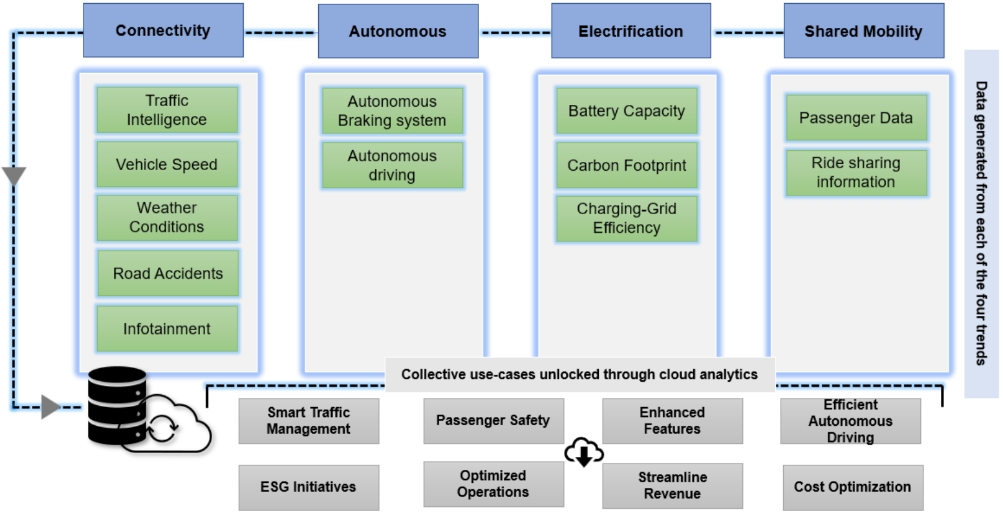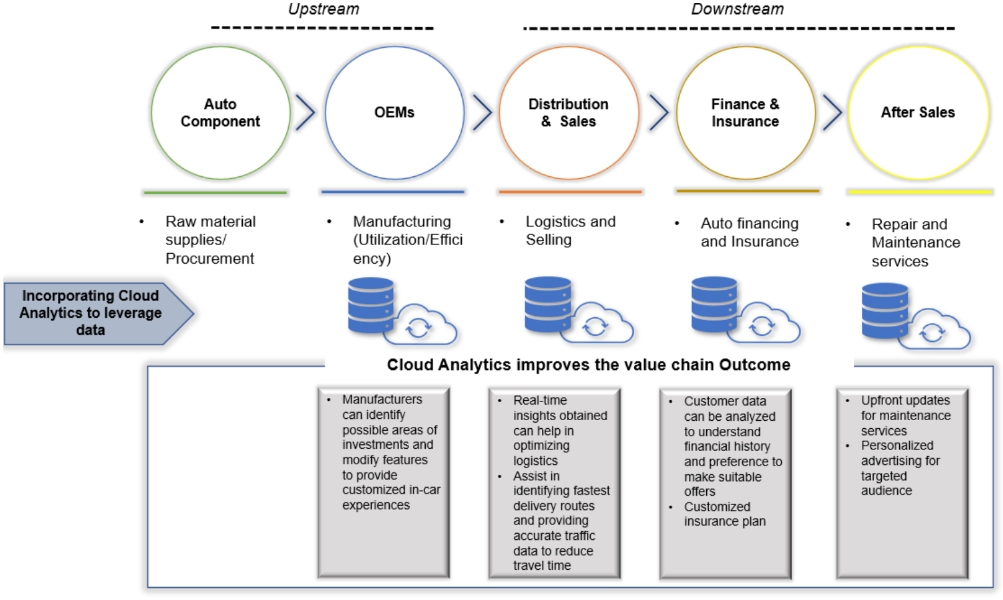Cloud analytics harnesses copious amounts of data to analyze and comprehend events like hard braking, real-time traffic intelligence, and historical insights into road incidents [6]. Manufacturers can utilize insights from connected car data to enhance the safety of both drivers and passengers, making the driving experience more enjoyable. Understanding behavioral patterns aids in identifying novel features and areas for investment. Vehicle data also enables manufacturers to optimize revenue through data monetization. A case in point is Ford's introduction of the 'Power Up' over-the-air update, which not only enhances vehicle performance but also monetizes customer data.
Enhancing Autonomous Car Data
Autonomous driving relies on substantial computing power to analyze vast streams of real-time sensor data [7]. Other autonomous technologies, such as Over-The-Air (OTA) updates, similarly demand high-performance capabilities and intelligent connectivity. To meet these demands, cloud analytics can leverage computing power while ensuring data security and insights to facilitate intelligent connectivity both within and outside the vehicle. The analyzed data, devoid of biases, and hosted within a centralized cloud infrastructure, can be employed to effectively train machine learning models for constructing autonomous driving features. Tesla's 'Navigate on Autopilot' exemplifies this with features that enable overtaking slower vehicles and taking exit ramps through lane changes.
Empowering Electrification Data
Electrification is gaining prominence in the automotive sector as it strives to reduce carbon footprints and embrace eco-friendly mobility solutions. Electric vehicles (EVs) generate substantial data about both the vehicle and the driver with every mile driven. Automakers can harness the power of cloud analytics to ingest and interpret this data, focusing particularly on battery data—the most invaluable information from EVs. This empowers drivers to comprehend real-time battery health and optimize its usage. Moreover, ecosystem players within the automotive sector can leverage these insights to devise innovative solutions.
Sensing Shared Mobility Data
Ever-evolving consumer preferences have given rise to shared mobility concepts like car sharing and car rentals [8]. This emerging trend has captured the interest of investors and the automotive sector alike. This shift has prompted automotive manufacturers to reconsider their traditional business models in favour of Mobility-as-a-Service. Leveraging analytics in the cloud for shared mobility data can open up new revenue streams. These insights can be strategically employed to develop innovative offerings, such as subscription models for end-users. Notably, Ola, a proponent of shared mobility, not only offers car sharing but also provides in-car infotainment and Wi-Fi enablement for customers.
Deciphering the Automotive Value Chain for Enhanced Outcomes
The benefits of cloud analytics extend beyond the immediate. The automotive value chain comprises critical activities performed at each stage, from vehicle design to customer experience. Introducing cloud analytics at various stages of this value chain can yield multiple advantages, enriching the overall outcomes sought by automakers. This includes optimizing vehicle performance, refining business models, reducing costs, and supporting Environmental, Social, and Governance (ESG) initiatives. Cloud-based analytics can unlock these benefits by harnessing data generated from various touchpoints throughout the value chain.










